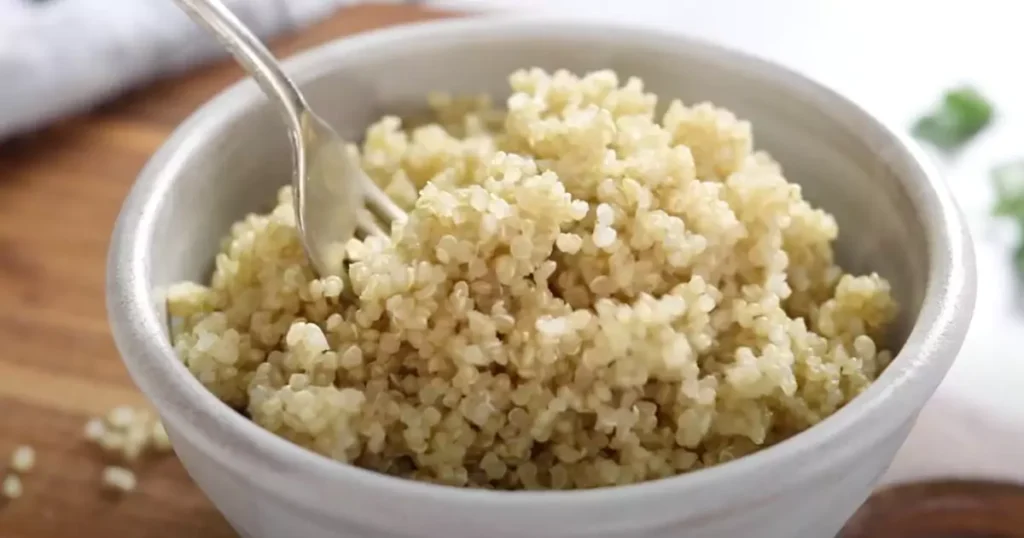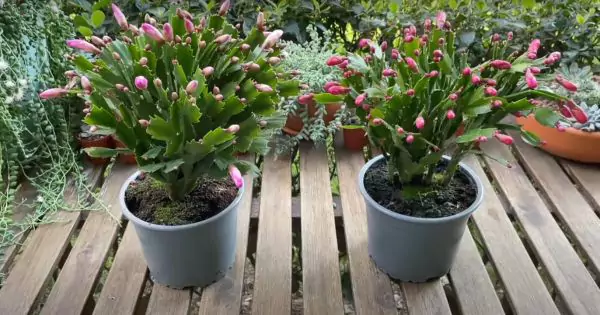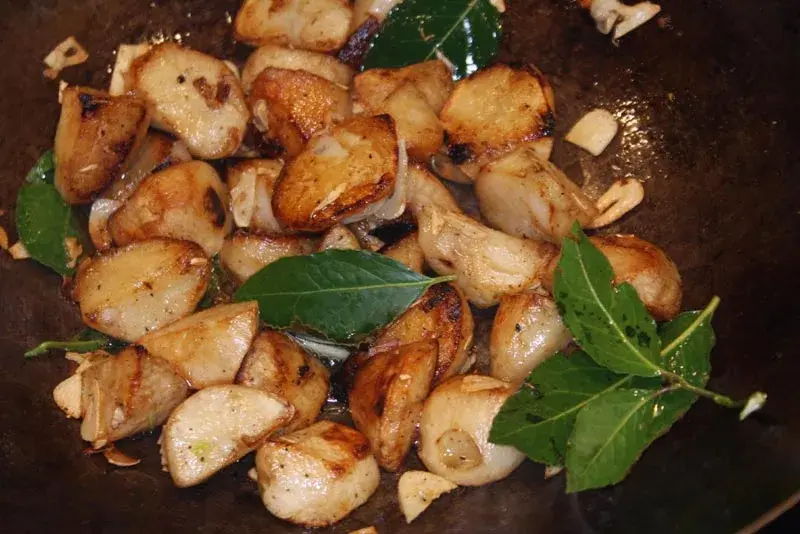
Are you striving to create a flourishing garden? The health of your soil and plants is crucial for success. Many gardeners seek natural methods to boost plant vitality, and turmeric, a vibrant yellow spice known for its health benefits, is an excellent choice for garden care. This guide will explore how turmeric can enhance your plants’ health and protect against diseases.
Why Use Turmeric in Your Garden?
Turmeric is rich in curcumin, a compound with powerful anti-inflammatory, antioxidant, and antibacterial properties. These properties make turmeric particularly effective against plant diseases, especially fungal infections, which are common in gardens. Here’s how turmeric can benefit your plants:
- Anti-inflammatory: Reduces inflammation in plants, promoting overall health.
- Antioxidant: Protects plants from oxidative stress caused by environmental factors.
- Antibacterial and Antifungal: Fights off harmful bacteria and fungi, preventing diseases.
How Turmeric Protects Plants
Incorporating turmeric into your gardening routine is straightforward and highly beneficial. It serves as a natural deterrent against pests and diseases and adds essential nutrients to the soil. Here are the key benefits of using turmeric:
- Pest Deterrence: The natural compounds in turmeric repel various garden pests.
- Disease Prevention: Turmeric’s antimicrobial properties help protect plants from fungal infections.
- Nutrient Enrichment: Turmeric contributes to soil health by adding essential nutrients.
How to Make a Turmeric-Based Garden Treatment
To harness the benefits of turmeric for your garden, follow this simple yet effective recipe. This mixture will boost plant health, improve soil fertility, and promote robust growth across various vegetables.
Ingredients:
- Turmeric powder: Acts as a natural fungicide and pest deterrent.
- Eggshells or agricultural lime: Rich in calcium, these ingredients help strengthen plant cell walls and prevent blossom end rot.
- Organic compost or well-rotted manure: Enriches the soil with essential nutrients and improves soil structure.
- Wood ash (optional): Provides potassium, essential for the overall health and vigor of plants.
Instructions:
- Prepare the Base Mixture:
- Crush the Eggshells: Start by finely crushing the eggshells into a powder or use agricultural lime for a quicker solution. Eggshells add calcium to the soil, which is vital for preventing issues like blossom end rot in tomatoes and peppers.
- Mix with Compost: In a bucket, mix the crushed eggshells or lime with a generous amount of organic compost or well-rotted manure. Compost enriches the soil with nutrients and enhances its structure, promoting better water retention and aeration.
- Add Turmeric:
- Mix Thoroughly: For every gallon of your base mixture, add about one tablespoon of turmeric powder. Stir thoroughly to ensure the turmeric is evenly distributed. Turmeric acts as a natural fungicide, helping to protect your plants from fungal infections.
- Enhance with Wood Ash (Optional):
- Add Wood Ash: If available, stir in a cup of wood ash to the mixture. Wood ash is rich in potassium, which supports strong root development and improves the plant’s resistance to diseases.
- Application:
- Apply to Soil: Apply the mixture to the soil around your plants, gently working it into the top layer without disturbing the roots. This can be done at planting time or as a mid-season boost to ensure continued nutrient availability.
- Watering:
- Thoroughly Water: After applying the mixture, water your plants thoroughly. This helps release the nutrients from the turmeric and other components into the soil, making them readily available to your plants.
Benefits for Your Garden
Using this turmeric treatment brings several benefits:
- Disease Prevention: Turmeric’s antimicrobial properties protect plants from fungal diseases and root infections. This can be particularly beneficial for plants prone to these issues, such as tomatoes, cucumbers, and roses.
- Pest Deterrence: The natural compounds in turmeric repel various garden pests, reducing the need for chemical insecticides. Common pests like aphids, ants, and mites are deterred by turmeric, promoting a healthier garden ecosystem.
- Nutrient Supply: The added nutrients from compost, manure, and other ingredients enhance soil fertility, supporting healthier and more productive plants. Essential nutrients like nitrogen, phosphorus, and potassium are released slowly, providing sustained nourishment.
Detailed Breakdown of Turmeric’s Benefits
Disease Prevention
Fungal diseases can wreak havoc in a garden, causing significant damage to plants and reducing yields. Turmeric’s curcumin has potent antifungal properties that inhibit the growth of fungi such as Fusarium, Phytophthora, and Pythium. These fungi are notorious for causing root rot, damping-off, and wilting in plants.
- Root Rot Prevention: Root rot is caused by several soil-borne fungi and is particularly devastating as it affects the plant’s ability to uptake water and nutrients. Regular application of turmeric can create an unfavorable environment for these fungi, helping to protect your plants.
- Damping-Off Control: This disease affects seedlings, causing them to collapse and die. Turmeric’s antifungal properties help to protect young plants during this vulnerable stage.
- Leaf Spot Reduction: Fungal leaf spots can deface plants and reduce their photosynthetic ability. Applying turmeric to the soil or as a spray can reduce the incidence of these unsightly spots.
Pest Deterrence
Pests can cause both direct damage by feeding on plants and indirect damage by transmitting diseases. Turmeric can help deter many common garden pests:
- Aphid Repellence: Aphids are tiny insects that suck sap from plants, causing distorted growth and potentially transmitting viruses. Turmeric’s strong aroma and taste can repel aphids, reducing their numbers.
- Ant Deterrence: Ants protect and farm aphids, increasing their damage. Turmeric can disrupt this relationship by deterring ants from the garden.
- Mite Control: Spider mites feed on plant juices, leading to stippled leaves and webbing. Turmeric’s compounds can help keep these pests at bay.
Nutrient Supply
Healthy soil is the foundation of a thriving garden. By adding turmeric to your soil mix, you improve its structure and nutrient content:
- Calcium from Eggshells: Calcium is crucial for cell wall development and growth. A deficiency can cause blossom end rot in fruits like tomatoes and peppers. Eggshells slowly release calcium into the soil, providing a steady supply.
- Nutrients from Compost: Compost improves soil structure, water retention, and nutrient content. It provides a balanced mix of macro and micronutrients essential for plant growth.
- Potassium from Wood Ash: Potassium is vital for various plant functions, including enzyme activation, photosynthesis, and disease resistance. Wood ash is a readily available source of this nutrient.
Practical Applications and Tips
Regular Application
For optimal results, regularly apply the turmeric-based treatment to your garden. Here’s a suggested schedule:
- At Planting: Incorporate the mixture into the planting holes to give young plants a strong start.
- Mid-Season Boost: Apply around the base of established plants mid-season to replenish nutrients and reinforce pest and disease resistance.
- Pre-Winter Prep: Apply a final layer before winter to enrich the soil for the next growing season.
Foliar Spray Option
In addition to soil application, turmeric can be used as a foliar spray. This method is particularly effective against leaf spots and fungal diseases. Here’s a simple recipe for a turmeric foliar spray:
- Ingredients:
- 1 teaspoon of turmeric powder
- 1 liter of water
- A few drops of mild dish soap (to act as a surfactant)
- Instructions:
- Mix the turmeric powder with water.
- Add the dish soap and mix well.
- Pour the mixture into a spray bottle.
- Spray directly onto plant leaves, ensuring thorough coverage.
Use this spray once every two weeks or after heavy rain to maintain its protective effects.
Companion Planting
Combine turmeric use with companion planting for enhanced pest control and soil health. Some effective companion plants include:
- Marigolds: These flowers repel nematodes and attract beneficial insects.
- Basil: Repels aphids, mites, and flies.
- Nasturtiums: Attract aphids away from your main crops and can trap them.
Eco-Friendly and Sustainable Gardening
Using turmeric aligns with principles of eco-friendly and sustainable gardening. It reduces the need for chemical pesticides and fertilizers, promoting a healthier environment. By choosing natural remedies, you support biodiversity and soil health, leading to a more resilient garden.
Case Studies and Testimonials
To understand the practical impact of using turmeric in gardening, let’s look at a few case studies and testimonials from gardeners who have successfully integrated turmeric into their practices.
Case Study 1: Vegetable Garden in California
Sarah, a home gardener in California, struggled with persistent fungal issues in her tomato plants. After reading about turmeric’s benefits, she decided to incorporate it into her gardening routine. Here’s her experience:
- Initial Application: Sarah prepared a turmeric-based mixture and applied it to her tomato plants at the start of the season.
- Mid-Season Check: By mid-season, she noticed a significant reduction in fungal infections. Her plants were healthier and more vigorous.
- End of Season Results: At the end of the growing season, Sarah’s tomato yield was higher than in previous years, and the fruit quality had improved.
Case Study 2: Community Garden in New York
A community garden in New York faced issues with aphids and poor soil fertility. The gardeners decided to experiment with turmeric as a natural remedy:
- Preparation and Application: They prepared a large batch of turmeric mixture and applied it to various vegetable beds.
- Pest Reduction: Within a few weeks, the aphid population had decreased noticeably. The plants were less stressed and showed better growth.
- Soil Improvement: Over time, the soil structure improved, and the nutrient levels were more balanced, leading to healthier plants and better yields.
Testimonials
- John, Florida: “Using turmeric in my garden has been a game-changer. My plants are healthier, and I’ve had fewer issues with pests and diseases.”
- Maria, Texas: “I love that I can use a natural remedy like turmeric to take care of my garden. It’s easy to use and very effective.”
Incorporating turmeric into your gardening practices offers a sustainable and effective method to improve plant health and soil condition. This spice, long revered in the culinary world, holds remarkable potential in organic gardening. By adopting such natural remedies, you contribute to a healthier environment, promoting sustainability and biodiversity in your garden. Whether you are nurturing a single vegetable patch or managing a diverse garden, turmeric can play a pivotal role in ensuring the vitality and success of your horticultural endeavors.
By embracing natural methods like turmeric, you not only enhance the health of your plants but also reduce your reliance on chemical treatments. This approach fosters a more eco-friendly and resilient garden, allowing you to enjoy the beauty and productivity of your plants while contributing to the well-being of the environment. So, the next time you’re looking for a natural way to boost your garden’s health, reach for turmeric – your plants will thank you!
Additional Tips for Garden Success
To further enhance your gardening efforts, consider these additional tips:
- Regular Monitoring: Keep an eye on your plants for any signs of stress, pests, or diseases. Early detection and intervention can prevent small problems from becoming big issues.
- Soil Testing: Periodically test your soil to understand its nutrient levels and pH. This information will help you make informed decisions about fertilization and amendments.
- Crop Rotation: Rotate your crops each season to prevent soil depletion and reduce the buildup of pests and diseases.
- Mulching: Apply mulch around your plants to retain moisture, suppress weeds, and improve soil health.
- Watering Practices: Water your plants deeply but infrequently to encourage deep root growth. Avoid overhead watering to reduce the risk of fungal infections.
By combining these practices with the use of turmeric, you can create a thriving, healthy garden that provides bountiful harvests and beautiful blooms. Happy gardening!

























































































































